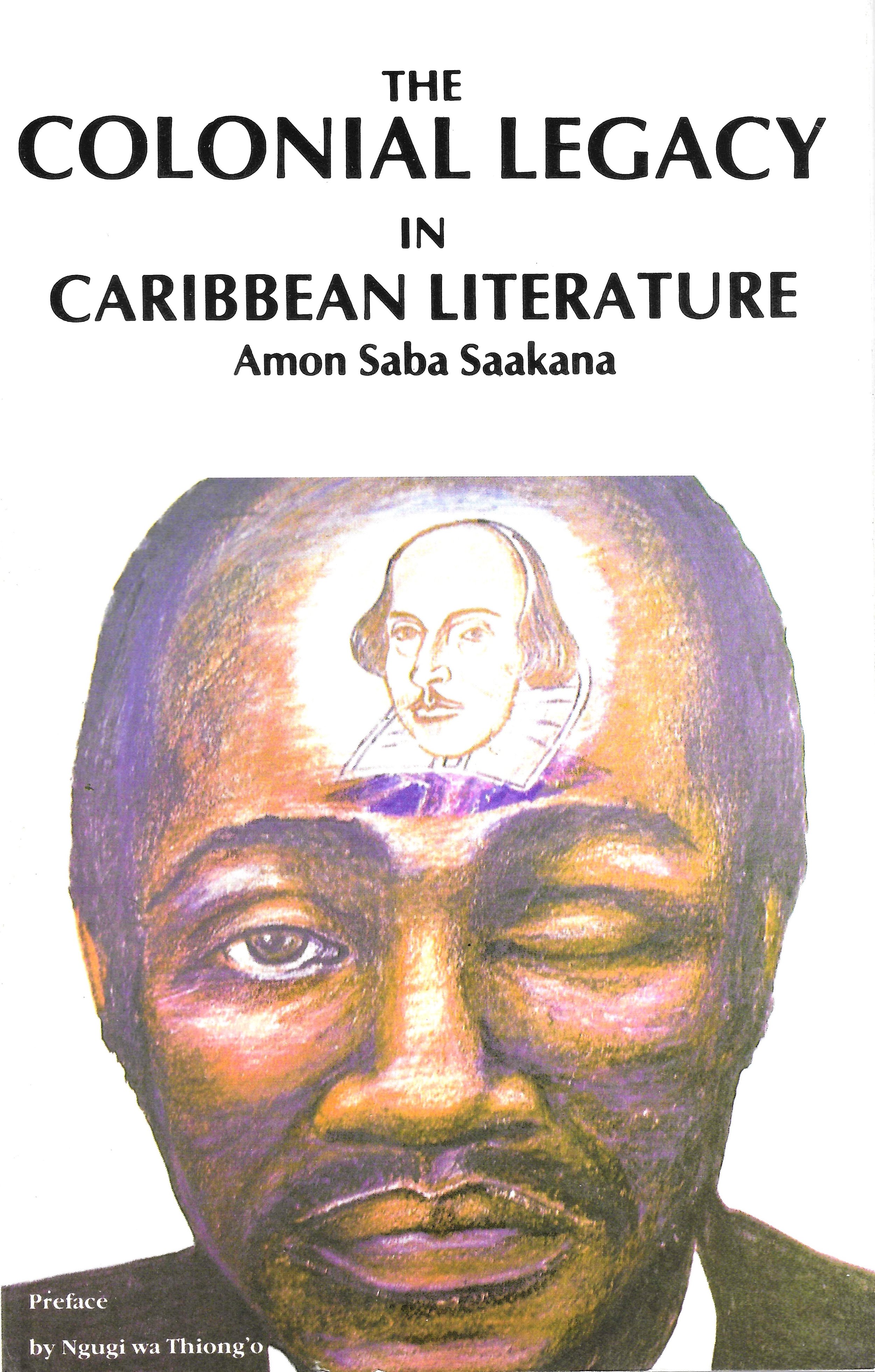 Image 1 of 2
Image 1 of 2

 Image 2 of 2
Image 2 of 2



The Colonial Legacy in Caribbean literature by Amon Saba Saakana
The literature on the history and development of Caribbean literature is sparse, and any literature on the extent to which European colonial influence has informed and influenced Caribbean writing is almost non-exis-tent. The author uses a variety of disciplines: history, politics, psychology to bring to bear on the interpretative analysis of how Caribbean literature has been removed from the source of its natural development. The history begins in the early 19th century, from the plantation and European literary and non-literary concerns of the plantocrats, to writing of fiction and verse which exalted European literary traditions and styles, the examination of a colonialist implantation of an educational system whose aim was the deculturation of the individual, to the full flowering of writing, not only in terms of fiction and verse, but in aesthetics and literary criticism. Through analysis and interpretation the author shows that writers such as Vic Reid, Ralph de Boissiere, H.G. de Lisser and V.S. Naipaul were falsely canonised by British literary critics. This reinforced the colonial legacy and made it doubly difficult for a truly liberating literature to emerge, although the popular arts (music, song, dance) contained the historical trends of tradition and power.
The literature on the history and development of Caribbean literature is sparse, and any literature on the extent to which European colonial influence has informed and influenced Caribbean writing is almost non-exis-tent. The author uses a variety of disciplines: history, politics, psychology to bring to bear on the interpretative analysis of how Caribbean literature has been removed from the source of its natural development. The history begins in the early 19th century, from the plantation and European literary and non-literary concerns of the plantocrats, to writing of fiction and verse which exalted European literary traditions and styles, the examination of a colonialist implantation of an educational system whose aim was the deculturation of the individual, to the full flowering of writing, not only in terms of fiction and verse, but in aesthetics and literary criticism. Through analysis and interpretation the author shows that writers such as Vic Reid, Ralph de Boissiere, H.G. de Lisser and V.S. Naipaul were falsely canonised by British literary critics. This reinforced the colonial legacy and made it doubly difficult for a truly liberating literature to emerge, although the popular arts (music, song, dance) contained the historical trends of tradition and power.
The literature on the history and development of Caribbean literature is sparse, and any literature on the extent to which European colonial influence has informed and influenced Caribbean writing is almost non-exis-tent. The author uses a variety of disciplines: history, politics, psychology to bring to bear on the interpretative analysis of how Caribbean literature has been removed from the source of its natural development. The history begins in the early 19th century, from the plantation and European literary and non-literary concerns of the plantocrats, to writing of fiction and verse which exalted European literary traditions and styles, the examination of a colonialist implantation of an educational system whose aim was the deculturation of the individual, to the full flowering of writing, not only in terms of fiction and verse, but in aesthetics and literary criticism. Through analysis and interpretation the author shows that writers such as Vic Reid, Ralph de Boissiere, H.G. de Lisser and V.S. Naipaul were falsely canonised by British literary critics. This reinforced the colonial legacy and made it doubly difficult for a truly liberating literature to emerge, although the popular arts (music, song, dance) contained the historical trends of tradition and power.
